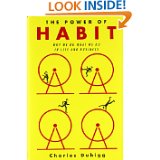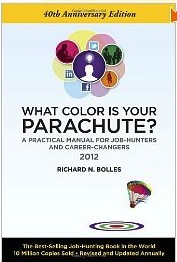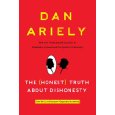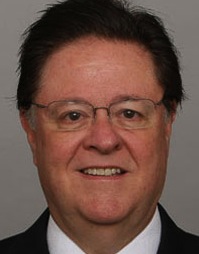We Are All Dishonest
October 30, 2012
What’s Going On in Your Brain
September 21, 2012
I finished more books on the brain over the last few weeks. Actually I finished three, but my friends tell me one doesn’t count. You can decide for yourself.
I won’t pretend to give them all thorough reviews, but I will make a brief comment on each. I think they are all worth reading of you want some insight into what’s going on in your mind as you wander through life.
Charles Duhigg’s “The Power of Habit,” was interesting for the first 125 pages (out of 290). He does a great job explaining how habits develop, but he leaves the specifics about what to do about it until the appendix. He offers a general theory and solution but he stops just short of a full answer. He uses his own habit as an example of how to break a habit. For my money that’s why people buy the book. A good part of the rest of the book was really marketing advice, and while it was interesting, I’m not sure it was ‘on point,’ as they say.
Lawrence Rosenblum’s “See What I’m Saying,” is a great look at neuroplasticity – the brain’s capacity to expand the functionality in one area, to make up for deficits in others. Rosenblum is a psychologist and researcher, not a writer, so his style is exactly the opposite of Duhigg. Where Duhigg is light and easy to read, Rosenblum can be a bit more theoritical or professorial. There’s nothing wrong with it, but you have to work much harder to find the nuggets. But his explanation of how hearing makes up for lost eyesight, or how touch and taste and smell can evolve, to help out when other senses are lost is fascinating.
Where Duhigg is light and easy to read, Rosenblum can be a bit more theoritical or professorial. There’s nothing wrong with it, but you have to work much harder to find the nuggets. But his explanation of how hearing makes up for lost eyesight, or how touch and taste and smell can evolve, to help out when other senses are lost is fascinating.
I also recently read Jonah Lehrer’s “Imagine,” and while I don’t condone his creative quotes from Bob Dylan, he does make some interesting points about the creative process. A good friend of mine told me , “you can never know what he’s making up.” Which is is quite valid – particularly for a journalist.  Maybe I’m just reflecting my own cognitive dissonance -believing what I want to believe – but I don’t think anyone could conjure all the situations and theories he presents out of nothing. In that vein, I’ve decided not to ask Amazon for my money back, even though they offered.
Maybe I’m just reflecting my own cognitive dissonance -believing what I want to believe – but I don’t think anyone could conjure all the situations and theories he presents out of nothing. In that vein, I’ve decided not to ask Amazon for my money back, even though they offered.
NFL PR Machine
August 30, 2012
I’m sure John York, Co-chairman of the San Francisco 49ers did not see his
presentation last night at the Commonwealth Club, as part of an NFL public relations roadshow, but that’s what it was.
Dr. York, who appeared with former NFL star Dan Fouts and San Diego trauma surgeon A. Brent Eastman, M.D. , was on hand to address traumatic injuries in the NFL. As head of the league’s Health and Safety Advisory Committee, his job was apparently to convince the crowd on hand that for the last 30 years the league has only had the best interests of its players in mind.
While this flies in the face of reality, particularly since over 2,000 former players are currently suing the league to seek compensation for their injuries, Dr. York insisted that the well being of the players has always been the highest priority.
Fouts was on hand to lend support with his litany of injuries, from pulled muscles
to a broken foot, back, shoulder and hand, many of which were blamed on late hits, which would not have been tolerated in today’s game. The real question might be, why were they tolerated then – when Fouts led the SanDiego Chargers in the 1980’s.
The Hall of Fame quarterback described his injuries in great detail, naming ‘assailants’ in most cases, but expressed clear disdain for the new rules implying that what current 49er quarterback Alex Smith plays is not really football anymore. Presumably because he has only missed two seasons to injuries and is still able to walk.
Fouts, along with his friend and surgeon, Dr. Eastman seemed to contradict himself, when he supported Dr. York’s contention that the game was better off with the new rules.
York denied there was any pressure on team doctors to get players back into the game quickly, saying he knew that was the policy on the 49ers, although he could not vouch for the rest of the league. Fouts told stories of being pushed back into action despite injury, which York claimed would never happen today.
It’s not a question of a team owner calling the team doctor to apply pressure, the doctor does it on his own, beacause he knows who signs his paycheck.
This is particularly true with head injuries and concussions. These injuries have only been addressed in the last few years when the NFL finally stopped relying on a discredited medical expert who claimed that head injuries and long term brain damage were not related. Dr. York says the issue is now being researched – most likely to buttress the League’s court defense .
The panelists may have convinced themselves but I remain skeptical, particularly since the NFL has been forced to make changes by lawsuits and owners who saw major hits to their bottom line when marquee players were out with season-ending injuries.
My Father’s Day
June 14, 2012
This weekend’s holiday will have a bit more meaning for me. It will be my first without Dad.
But I thought I’d post a few memories.
A Good Read
February 19, 2012
There are all kinds of book reviews. Those that wax poetic about sentence structure and pacing and the finer points of writing, without giving you any indication what a book is about.
Then there are those who tell you the whole story and never tell you if the book is worth buying.
For me, book reviews should be short and to the point.
If you are looking for a good read, pick up a copy of the “The Lost Saints of Tennessee” by Amy Franklin-Willis. – a debut novel in the best Southern literature tradition.
The genre is really beside the point. I don’t really read a lot of fiction and I’m not from the South, but I can honestly say, when I got to the last page, I didn’t want the story to end. To me that’s the mark of fine writing.
It’s good to know Ms Franklin-Willis is already working on the sequel.
Dealing with Pain
September 29, 2011
I recently got over a bout of cellulitis and it brought new meaning to a book I finished a few months ago: The Pain Chronicles by Melanie Thernstrom.
Cellulitis is an inflammation or infection that can settle in a joint and cause severe discomfort until you convince it to leave. I had gradually increasing pain for three days, and couldn’t even walk for a few more, before my crack medical team figured out the problem.
The point is not my problem, but the pain. After just a few days of it, I found new insight into the observations made by Ms Thernstrom and while I would have recommended her book anyway, I would now suggest it as required reading.
If you have ever been in pain, have a friend pain, or think you may ever be in pain, I would suggest you read this book. It really focuses on chronic pain, which is anything older than 6 months, according to medical professionals, but it will give you some insight into what’s going on. I have dealt with this kind of issue in past posts, but Ms Thernstrom does a much more thorough job.
It should also give you new empathy for folks, who have chronic back, knee, leg, neck or any other kind of pain but look perfectly healthy otherwise. Medical professionals know that pain is now recognized as it’s own disease and needs to be treated separately.
As Ms Thernstrom can attest, it can cause both physical and physiological changes that are extremely difficult to reverse. Ms Thernstrom’s book is a first hand account of her own chronic pain and her attempts to deal with it. It is also a well-researched history of how society, since the ancient Greeks, have tried to deal with the concept.
Like many books written by journalists, it is easy to read, clear and lays out the issues in a logical progression.
As we all age, and encounter more and more aches and pains, in places we never knew existed, we need to understand what’s happening both physically and psychologically. Ms Thernstrom does not have all the answers and sadly, she cannot say that she found a magic cure, but she tried a number of techniques and she can at least maintain a ‘normal’ life – something that I found hard to consider as I dealt with my short battle with pain.
The book recently became available in paperback or, of course, as an e-book.
Forty Years of Parachutes
September 20, 2011
At 84, you might think that Richard Bolles was ready to slow down. But the author of the seminal career coaching guide, “What Color is Your Parachute,” says that after 40 years of updating his work he has no intention of stopping.
Speaking at a recent meeting of the East Bay Coaches Chapter, Bolles left no doubt he has plenty of new ideas and that his books are still relevant as United States suffers through the worst recession in 60 years.
In an hour-long presentation that ranged from the humble beginnings of his book and career, to comments on modern politics he offered lessons on attitude, re-framing and relevance. Proving that he deserves the honor of the nation’s career coach.
He urged members to understand their own needs and experiences as a way to empathize with their clients. “What else do we live for? he asked, “than to use our experiences to help others?”
 He suggested that coaches need to point out to their clients, depressed about lengthening unemployment, that despite the monthly numbers, there are still 6 million people who change jobs every month. “It’s all about attitude,” he told the group. Pointing out that if you think you won’t get the job you probably won’t. “Your job is to help your client be one of those 6 million.”
He suggested that coaches need to point out to their clients, depressed about lengthening unemployment, that despite the monthly numbers, there are still 6 million people who change jobs every month. “It’s all about attitude,” he told the group. Pointing out that if you think you won’t get the job you probably won’t. “Your job is to help your client be one of those 6 million.”
“Looking for a new job is now a survival skill, and we have to look at it that way,” he says. “just like food, clothing, or shelter.”
He says that while times have changed the basic dichotomy of how people look for jobs and how employers look for employees has stayed the same. “Employers just want to avoid mistakes, but potential employees still think that sending out millions of resumes will get them noticed. It won’t.”
Bolles has updated his “Parachute” books every year, except 1975, since it was first published in 1970. He includes a coaches appendix in the back but insists that, “people need to keep up. they have to have read my current edition, if they want to be included.”
Bolles, who lives in Danville, California, also had some pointed words for politicians, who he sees as short sighted as they cut back on the support system that US job seekers need, but more importantly he bemoans the lack of empathy he sees in Washington.
“I can’t believe that politicians and their supporters are cheering at the thought of people without health care, or the number of executions in a state.” he notes. Bolles says he has voted for both democrats and republicans, but adds, “this GOP is not mine, their only goal is to make sure Obama is a one-term President, so they can get his job.”
Bolles has been proclaimed “America’s Top Career Expert” and his books have been called among the most important of the last 80 years. But he says he plans to continue writing, holding workshops, and lecturing. “I’ll be updating my books,” he says “until I’m forced to say goodbye to my lovely wife.”
Local, World Politics
August 24, 2011
You never know when international news will make its way into your life.
I just got back from my local bank. It’s the only branch, in what qualifies as ‘downtown,’ in my little community of 5,000.
I had a bunch of checks to deposit and since there was no one else in the building, I listed them on the deposit slip and asked the teller to do the addition. While he was adding, I noticed his name looked Middle Eastern, and when he counted the checks in French I asked if he came from Northern Africa.
I guessed Morocco, but to my surprise he said, “Libya,” then added ,”It’s a good day to be Libyan.”
I couldn’t help but ask how felt about what was going on and it was clear that he was both proud of his native country and a bit worried. “I am very happy, not just for me, but for my father. He never thought he’d see the day…” His father is here with him but he admitted they were already thinking about when they could go back, at least to visit.
I asked what he thought would happen next and he offered,”It depends who takes control. If it’s a Muslim country – meaning the majority is of the Muslim faith, then it will not be a problem. But if the Islamists get a foothold and take over, it will be as if, a certain dictator never left.”
I asked about tribal conflict, which the Western press has been harping on, and he said, ‘The tribes are not a problem, It’s not like Iraq. The tribes are families, but they are all Libyan.” I wished him well and he offered his hand and a heartfelt,”thank you.”
You may think that international politics is far away, but to paraphrase Tip O’Neill “it’s all local.”
BFF
August 4, 2011
Public Speaking 101
August 3, 2011
I recently attended a professional meeting to hear an expert on a topic I find interesting.
The actual topic is irrelevant, as is the speaker’s name.
When I arrived the registration table there were a number of brochures from the speaker, none of which seemed to focus on the advertised topic. I mentioned this to another attendee and she agreed, noting she was a bit surprised, but thought maybe the marketing materials were intended for a wider audience.
Fair point, I thought, since it was s pretty small group and she probably wouldn’t have created something just for this event.
I happened to meet the speaker before the event started and mentioned my concern and she explained what she had been told to address, which was, again, different from the original advertised topic.
When the lecture started she apparently switched gears again, asking the audience, what they wanted to hear. A noble idea, but what followed was a rambling, disjointed series of answers to audience questions. Some authoritative and others, she admitted, were not her area of expertise.
I’m not sure how the evening evolved into it’s final form, but I felt was a waste of two hours of my time. Maybe it was my fault, for expecting too much, but maybe, she should have just lectured on a topic that matched her expertise.
That’s all I really expected and would be a minimal goal for any presentation. My advice, next time you are asked to speak, just talk about what you know, in an entertaining and engaging style, and don’t worry about the preconceptions of the audience.




